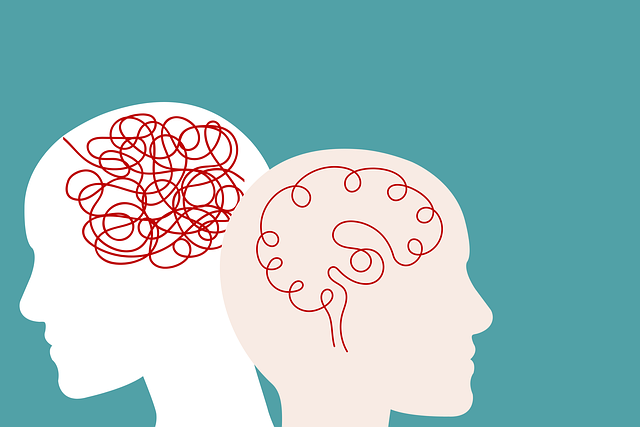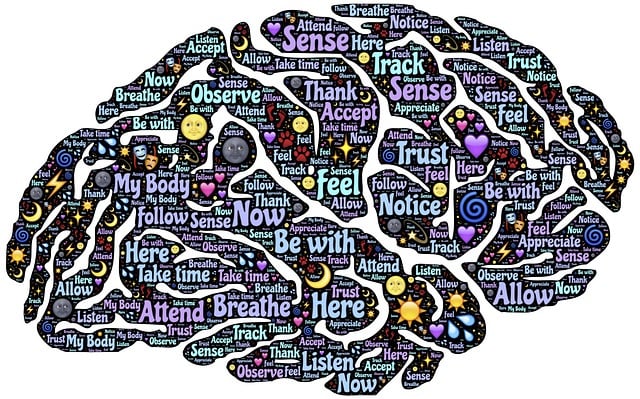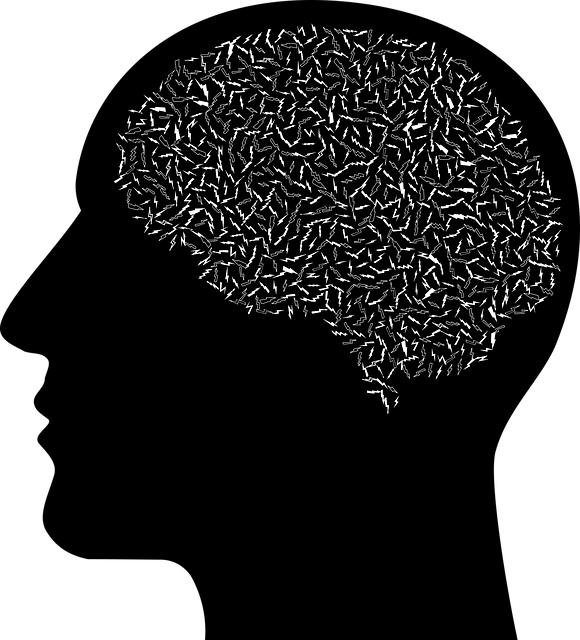Denver French Speaking Therapy offers tailored mental health literacy programs for French-speaking communities, addressing critical needs with interactive workshops and personalized sessions. These initiatives simplify complex concepts in accessible language, covering topics like emotional expression, conflict resolution, and burnout prevention. By incorporating culturally sensitive exercises and empathy-building strategies, the program fosters open dialogue about mental health, breaking taboos and enhancing support within these communities. Through journaling exercises, compassion cultivation, and interactive learning, Denver French Speaking Therapy equips individuals with skills for self-reflection, mindfulness, and resilient communication, normalizing emotional expression and problem-solving tailored to their linguistic and cultural needs.
In many French-speaking communities, mental health literacy remains a significant challenge. This article explores the design of an effective education program, focusing on cultural sensitivity and interactive learning strategies. We delve into key components essential for engaging participants and ensuring long-term impact, using Denver French Speaking Therapy as a case study. By understanding the unique needs of these communities, we can create programs that foster mental well-being and break down barriers to care.
- Understanding Mental Health Literacy in French-Speaking Communities
- The Role of Cultural Sensitivity in Program Design
- Key Components of an Effective Education Program
- Implementing Interactive Learning Strategies for Engagement
- Measuring Success and Ensuring Long-Term Impact with Denver French Speaking Therapy
Understanding Mental Health Literacy in French-Speaking Communities

In French-speaking communities, mental health literacy is a crucial aspect that often requires tailored approaches and specialized programs. Given the cultural nuances and linguistic barriers, individuals may face unique challenges when it comes to understanding and accessing mental wellness resources. Denver French Speaking Therapy has recognized this gap, leading to the development of innovative educational initiatives aimed at fostering mental health awareness among local communities. These programs focus on breaking down complex concepts into accessible language, ensuring that French-speaking residents can navigate their mental health journeys effectively.
The design of such initiatives incorporates interactive workshops, group discussions, and personalized guidance sessions. Mental Wellness Journaling Exercises, for instance, offer a creative outlet for individuals to express and process their emotions while Conflict Resolution Techniques empower participants with skills to manage interpersonal challenges. Additionally, Burnout Prevention Strategies for Healthcare Providers are integrated into the curriculum, recognizing the specific pressures faced by professionals in these communities. Through these comprehensive programs, Denver French Speaking Therapy strives to enhance mental health literacy, ultimately improving access to support and care within French-speaking populations.
The Role of Cultural Sensitivity in Program Design

In designing mental health education programs, cultural sensitivity is paramount to ensure effectiveness and accessibility for diverse populations. Considering Denver’s demographic landscape, where French-speaking communities are prominent, tailored approaches are essential. Incorporating self-awareness exercises that resonate with these cultures can foster a sense of belonging and understanding. By addressing unique cultural nuances, the program can offer burnout prevention strategies that are both relevant and practical for French speakers navigating mental health challenges within their specific contexts.
Furthermore, empathy building strategies should be integrated to promote intercultural connections and understanding among participants from various backgrounds. This sensitivity not only enhances learning but also encourages open dialogue about mental health issues, particularly in communities where such conversations might traditionally be taboo or under-represented, like the French-speaking population in Denver.
Key Components of an Effective Education Program

An effective mental health education program, like Denver French Speaking Therapy’s initiatives, should incorporate several key components to ensure impactful learning and positive behavioral changes. Firstly, Mental Wellness Journaling Exercise Guidance serves as a powerful tool for self-reflection and processing. Encouraging participants to document their thoughts, emotions, and experiences allows them to gain valuable insights into their mental health journey. This practice fosters self-awareness, enabling individuals to better understand their triggers, coping mechanisms, and personal growth.
Additionally, incorporating Compassion Cultivation Practices within the program design is essential for promoting empathy and reducing stigma. These practices encourage participants to cultivate kindness towards themselves and others, which can significantly enhance mental resilience. By learning and practicing mindfulness, active listening, and compassionate communication, individuals gain valuable skills to navigate challenging situations with grace and understanding. Such an inclusive approach ensures that the education program not only equips participants with knowledge but also fosters a supportive community where open conversations about mental health are encouraged.
Implementing Interactive Learning Strategies for Engagement

Implementing interactive learning strategies is essential for fostering engagement in mental health education programs, especially when catering to diverse audiences like Denver French-speaking communities. These strategies go beyond traditional lectures and encourage active participation, making complex topics more accessible and relatable. For instance, incorporating role-playing exercises can help participants explore different scenarios and practice coping mechanisms in a safe environment. This approach not only enhances understanding but also builds resilience by normalizing emotional expression and problem-solving skills.
By integrating interactive elements, such as group discussions, case studies, and creative activities, the program becomes more dynamic and inclusive. This is particularly beneficial for French-speaking individuals who may face language barriers in accessing mental health services. Interactive learning allows them to actively contribute using their native language, fostering a sense of comfort and encouraging open communication about sensitive issues. Moreover, these strategies can be tailored to incorporate cultural nuances, ensuring that the education aligns with the unique needs and experiences of Denver’s French-speaking therapy seekers.
Measuring Success and Ensuring Long-Term Impact with Denver French Speaking Therapy

Measuring success and ensuring long-term impact are crucial aspects of designing an effective mental health education program, especially when catering to specific communities like Denver’s French-speaking population. Denver French Speaking Therapy has pioneered innovative approaches to address mental wellness challenges within this demographic. By incorporating tailored sessions that combine cultural sensitivity with evidence-based practices, they aim to break down barriers and promote open conversations about mental health.
The program’s success is evaluated through a multi-faceted approach. This includes pre and post-therapy assessments to gauge improvements in anxiety relief and conflict resolution techniques among participants. Long-term follow-up sessions help identify lasting impacts, ensuring that the education and support provided translate into sustained mental wellness benefits. Such comprehensive evaluation enables therapists to refine their methods, making Denver French Speaking Therapy a true game-changer in promoting mental health awareness within this community.
Mental health education programs, tailored to meet the unique needs of French-speaking communities, are essential tools for fostering well-being. By incorporating cultural sensitivity and interactive learning strategies, as demonstrated by the success of Denver French Speaking Therapy, we can create impactful initiatives that promote mental health literacy. These programs have the potential to revolutionize access to support, ensuring long-term positive outcomes for individuals within these communities.














